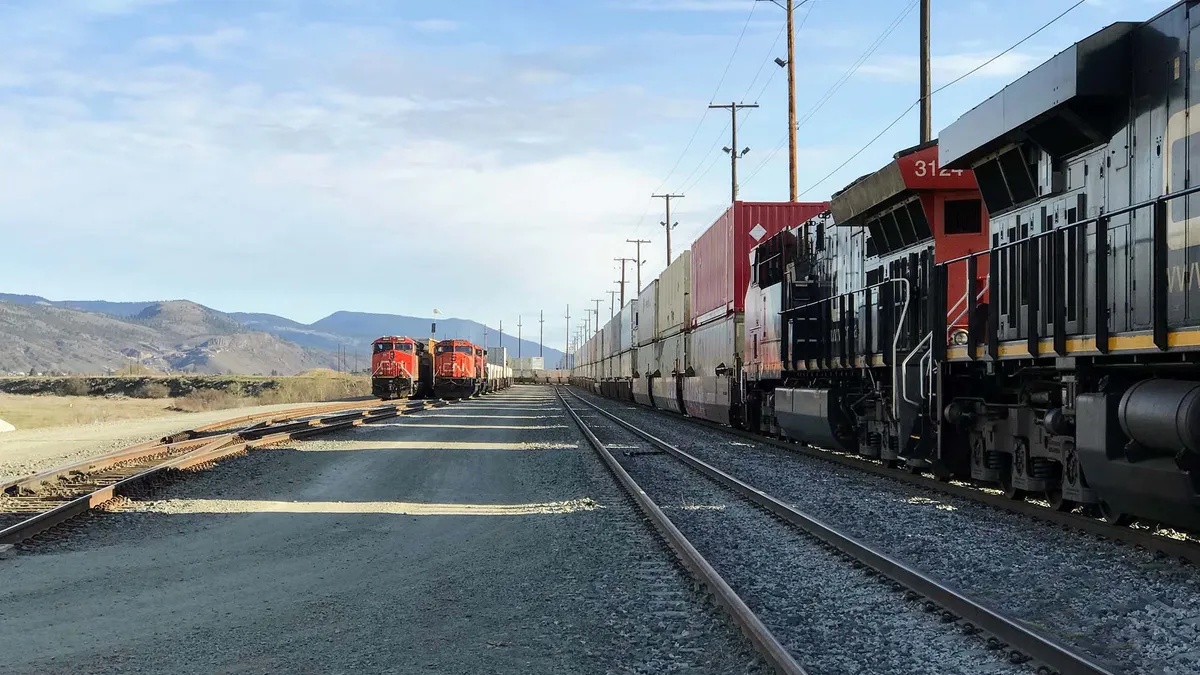Represented workers from Canadian National and Canadian Pacific Kansas City Southern — Canada’s largest railroads — overwhelmingly voted in favor of going on strike unless they get a new labor deal, the union announced Saturday.
The result of the vote by more than 9,200 Canadian railroad workers does not mean a strike is eminent. It does, however, position members of the Teamsters Canada Rail Conference to conduct a work stoppage unless members receive a new contract to replace its previous deal that expired on Dec. 31, 2023.
Overall, 98.6% of the 89.5% of members who voted between June 14 and June 29 favored going on strike, according to the union.
Saturday’s results mark the second time the union has authorized a strike this year. Members previously approved a strike on May 1, which positioned the union to begin a work stoppage on May 22.
However, intervention by Seamus O’Regan, Canada’s Minister of Labour, closed that strike window, as he requested the Canada Industrial Relations Board to investigate whether a work stoppage would impact Canadians’ health and safety.
The union, Canadian National and CPKC submitted information about a strike’s potential impact on delivery of critical supplies, including food, propane and fuel. A spokesperson for the industrial relations board said the submissions are under review but offered no timeline for when a decision will be made.
While it is unclear when the government will issue a decision, “it is unlikely the parties will be in a position to initiate a legal strike or lockout before mid-July or later,” CPKC said in a statement.
Until the Canadian government makes a ruling, the union cannot legally strike. A spokesperson for the union said Canadian law requires another vote because the previous strike authorization was only valid for 60 days and expired June 30.
Now the union is positioned for another 60 days to legally strike. A work stoppage cannot start until 72 hours after the government announces a decision.
Represented employees include locomotive engineers, conductors, train and yard workers, and rail traffic controllers. Nearly 3,300 are employed by CPKC and around 6,000 work for Canadian National.
Talks between the union and Canadian National and CPKC began in November, but the parties are no closer to a new labor agreement. The union seeks better wages, improved working conditions and flexibility on fatigue management.














